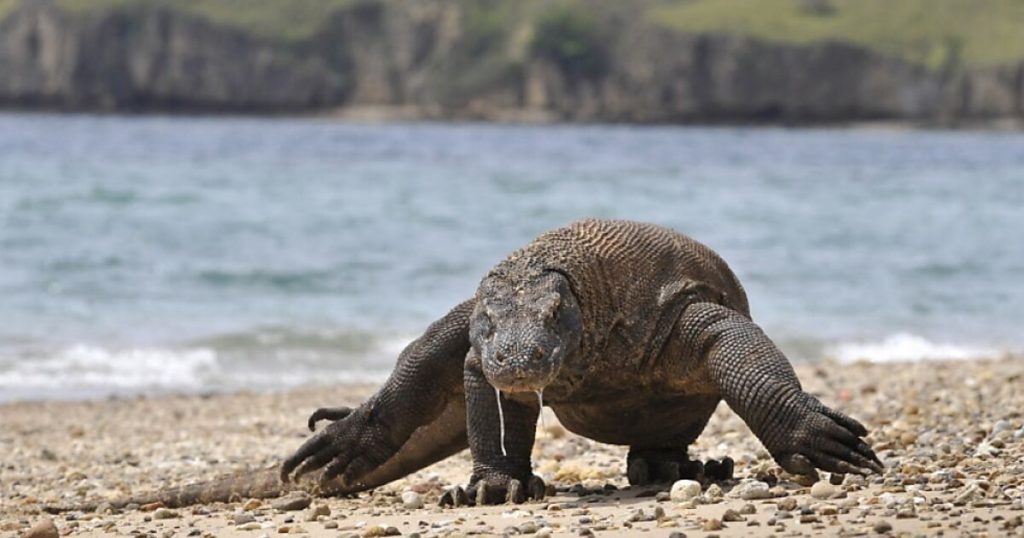The world’s largest living lizard, the Komodo dragon in Indonesia, is more threatened than previously thought. The International Union for Conservation of Nature (IUCN) has classified its list of threatened animal and plant species as “endangered” since Saturday. This drives it one step higher on the extinction scale. In total, there are now approximately 140,000 species on the Red List of Threatened Animal and Plant Species, of which approximately 40,000 are endangered.
The IUCN classifies the species examined into eight categories, from “insufficient data” to “extinct”. Threatened is level 5.
According to the IUCN, the Komodo dragon is affected by climate change. Rising sea levels are likely to cause a third of their natural habitat to disappear in the next 45 years: omnivorous animals, up to three meters in length, live in eastern Indonesia, in Komodo National Park and on the neighboring island of Flores. millions of years. It is estimated that there are still about 6000 animals left.
The IUCN has better tuna news: Stocks of four of the seven most popular tuna species have recovered after decades of protection measures. Fishing quotas and consistent anti-poaching measures have had an impact.
For example, the International Union for Conservation of Nature estimates that the number of bluefin tuna (Thunnus thynnus) living in the Mediterranean has increased by 22 percent over the past four decades. This species was previously listed as “endangered”, but was immediately improved by three levels. It is no longer considered endangered. This also applies to whitefin tuna (Thunnus alalunga) and yellowfin tuna (Thunnus albacares), which have improved by one level. The population of the still critically endangered southern bluefin tuna (Thunnus maccoyii) has also recovered slightly, and has been upgraded from Category 6 to Category 5.
The IUCN is committed to protecting nature and species. It has more than 1,300 members, including ministries, federal agencies, nature conservation societies, and research institutes. The International Union for Conservation of Nature (IUCN) is currently holding a species conservation conference in Marseille.
(Service – Red List: https://www.iucnredlist.org/ The World Congress for the Conservation of Marseilles: https://www.iucncongress2020.org/)

“Food practitioner. Bacon guru. Infuriatingly humble zombie enthusiast. Total student.”








More Stories
Kyiv: Russian Kursk offensive halted
US Presidential Election: Former US Government Officials Warn Against Donald Trump's Election
Netherlands wants to leave asylum system